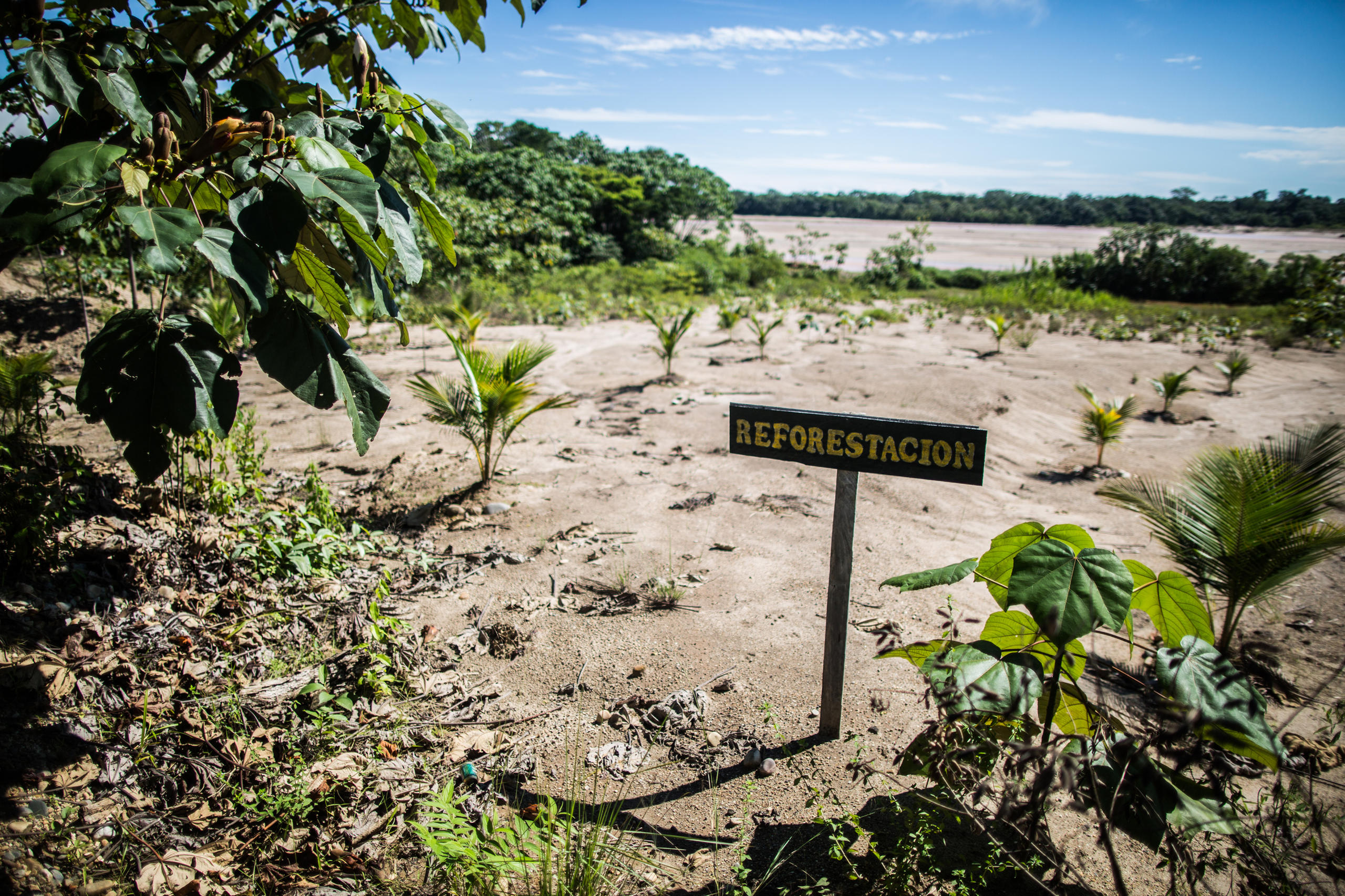
Swiss responsible gold standard faces questions after mining accident in Peru

A fire that led to the death of 27 miners at a Peruvian mine has prompted questions about the rigor behind a Swiss government-backed effort to improve safety and working conditions in the gold supply chain.
Switzerland is one of the most important hubs for gold trading and refining. It’s estimated that around two-thirds of the world’s gold is refined in the country. Much of this gold is mined by artisanal and small-scale miners in Latin America and Africa.
The Swiss government has been working with refiners and various organisations to improve the safety and working conditions of artisanal miners under the banner of the Better Gold Initiative, a public-private partnership supported by the Swiss government.

More
Why Switzerland struggles with dirty gold
External linkOn May 6, a fire broke out at La Esperanza mine in the Yanaquihia district in Peru, killing 27 gold miners who were unable to escape. The fire was the country’s deadliest mining accident since 2000.
The mine had been part of the Swiss Better Gold Initiative, reveals the German-language paper NZZamSonntag. In June 2020, the initiative announced that a partnership with the Yanaquihua mining company and the Swiss refiner Metalor led to the creation of a fully traceable and responsible international supply chain from the Arequipa region in Peru to the Swiss market.
The initiative is now trying to make sense of the tragedy. “The accident is a shock for us,” Thomas Hentschel, Director of the Swiss Better Gold Initiative, told NZZamSonntag. He’s visited the mine before and said, “it’s one of the really good mines we have in Peru”.
Christoph Wiedmer, co-director of the NGO Society for Threatened Peoples, says that the accident should prompt reflection on whether there’s enough rigor in the responsible mining standards and verification systems.
“Although the causes have not yet been conclusively clarified, from our point of view the question arises as to whether responsibility has been sufficiently taken adopted across the entire supply chain,” said Wiedmer in a press release. “There are many indications that the previous due diligence measures were insufficient.”
The Better Gold Initiative for Artisanal and Small-Scale Mining was launched in 2013 by the Swiss Better Gold Association with the aim to expand production of responsibly sourced artisanal and small-scale mined gold with a focus on Peru, Colombia and Bolivia. A key aspect is formalisaing miners and securing accreditation as responsible producers. Companies such as refiners and jewelers commit to buy Swiss Better Gold at a premium price. The initiative received CHF18 million in federal funding until 2025.

In compliance with the JTI standards
More: SWI swissinfo.ch certified by the Journalism Trust Initiative

























You can find an overview of ongoing debates with our journalists here . Please join us!
If you want to start a conversation about a topic raised in this article or want to report factual errors, email us at english@swissinfo.ch.